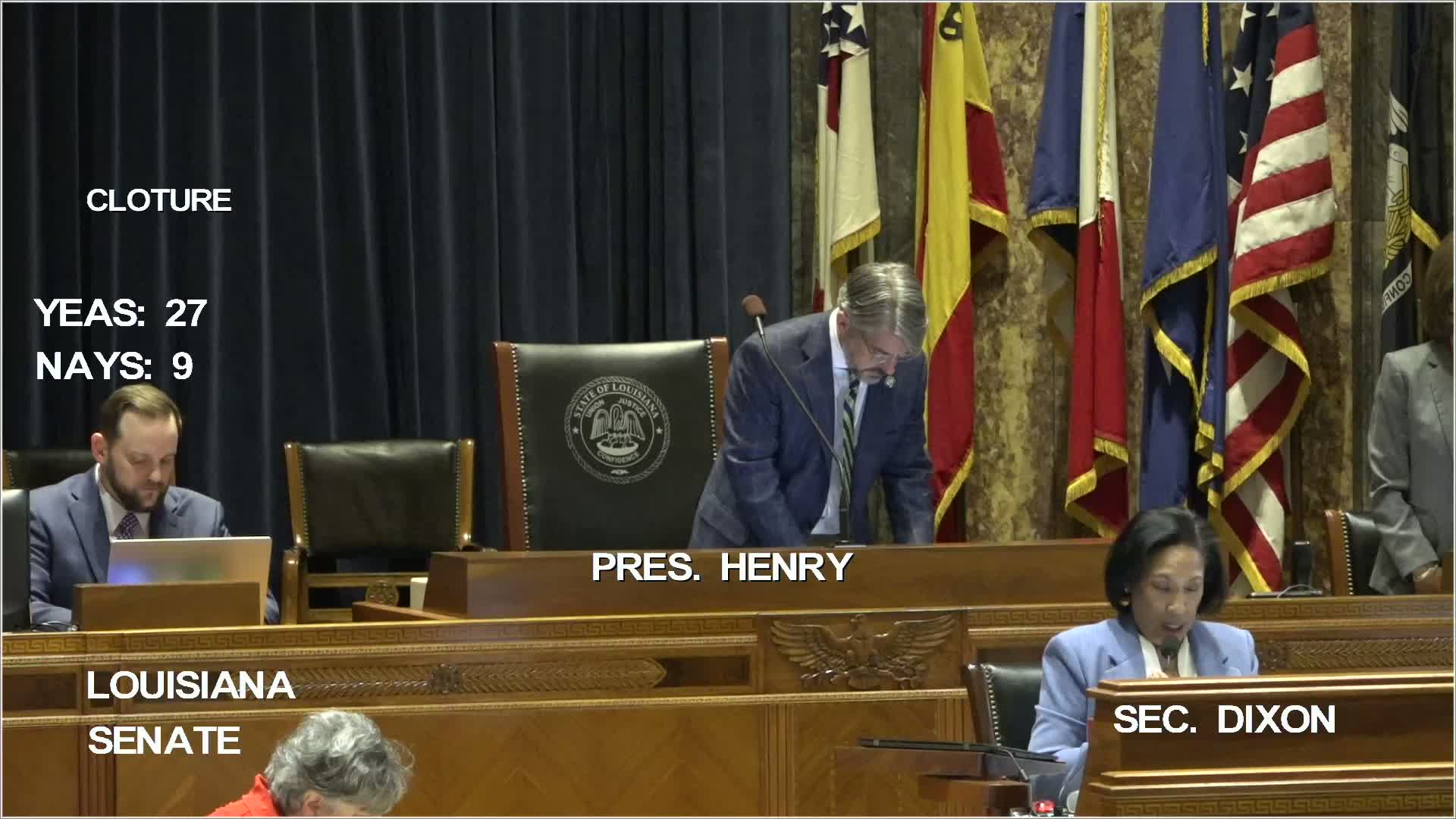Louisiana Senate approves bill moving 2026 spring election dates over objections about legal risk
Get AI-powered insights, summaries, and transcripts
Subscribe
Summary
The Louisiana Senate passed Senate Bill 1 to move 2026 spring election dates (moving the April primary to May and the May runoff to June) and adopted an amendment meant to protect prior local election notices. Opponents said the change is premature and risks constitutional and Voting Rights Act challenges; the final vote was 27-9.
The Louisiana Senate on Saturday passed Senate Bill 1, a measure that moves the state’s 2026 spring election dates — changing the April primary to May and the May runoff to June — and adopted an amendment clarifying that prior local notices tied to the old dates would not be invalidated. The bill passed on final passage by a vote of 27-9.
Senate Bill 1 changes “the April election to the May and the May to the June,” the bill’s author, Senator Kleinpeter, told colleagues on the floor and offered an amendment that said actions by political subdivisions tied to the original April 18, 2026, or May 30, 2026, dates “shall not be construed to invalidate any action undertaken by the governing authority of a political subdivision” for placing bond, tax or proposition questions on those ballots. The amendment identifies the replacement dates as May 16, 2026, and June 27, 2026.
Supporters said the change buys time while litigation over congressional maps proceeds. “We could draw a 6–0 map. We could draw a 5–1 map. That's not what we're here doing. We are here to give the highest court in the land the decision and to give us direction,” Kleinpeter said.
Opponents warned the change is more than a simple calendar adjustment and could run afoul of constitutional protections and federal voting law. “Within the four corners of this bill and on every page of this bill, it is riddled with election violations,” said Senator Jenkins. “It violates our fourteenth and fifteenth amendment to our US constitution. It violates section 2 of our Voting Rights Act.”
Senator Jackson Andrews likewise argued the election cycle had already begun and that changing rules now risks violating the Purcell principle against changing election rules close to an election. “The Purcell rule is very clear … what is too close? It's too close when you have to begin to waive local procedures to move a date,” Jackson Andrews said.
The bill’s proponents said moving the dates delays, rather than accelerates, the process and will give local officials and candidates more time to comply with deadlines. During floor questions, senators confirmed the change would affect qualifying and petition deadlines already underway; the qualifying date listed in discussion was Jan. 14, 2026, and nominating-petition signature gathering was described as currently under way, with petition deadlines calculated at 120 days prior to qualifying.
An amendment offered by Senator Kleinpeter and adopted on the floor was described during debate as intended to prevent local notices or proclamations that referenced the earlier dates from being invalidated solely because the statutory dates changed.
Senate Bill 1 now proceeds toward the House as part of the 2026 election scheduling package.
